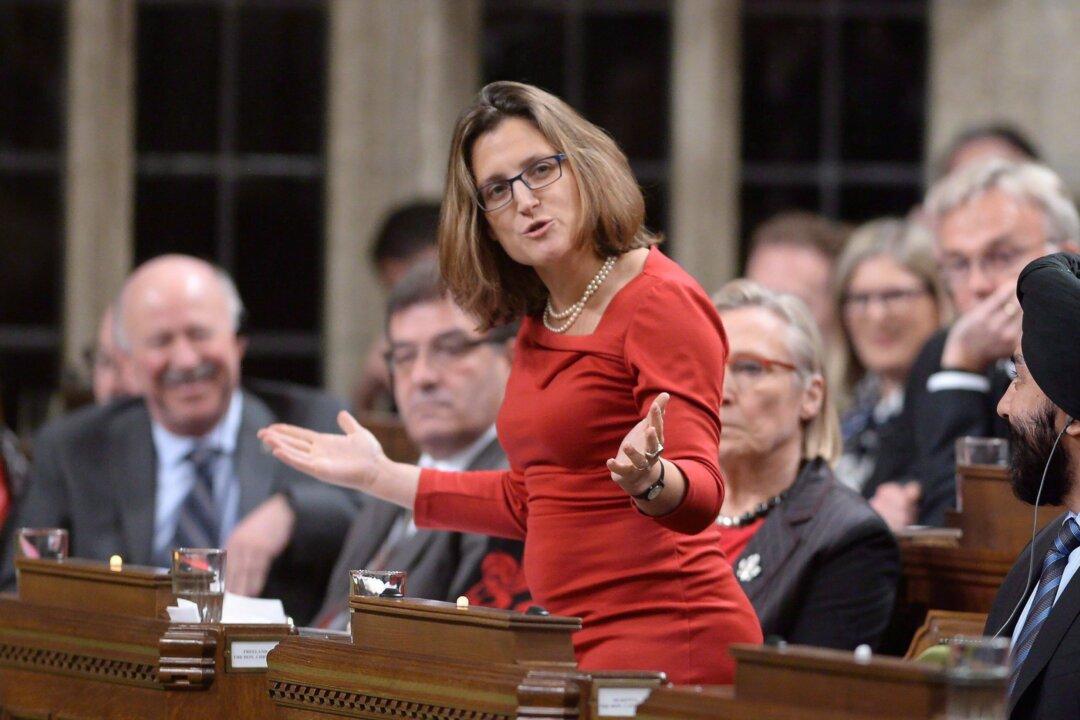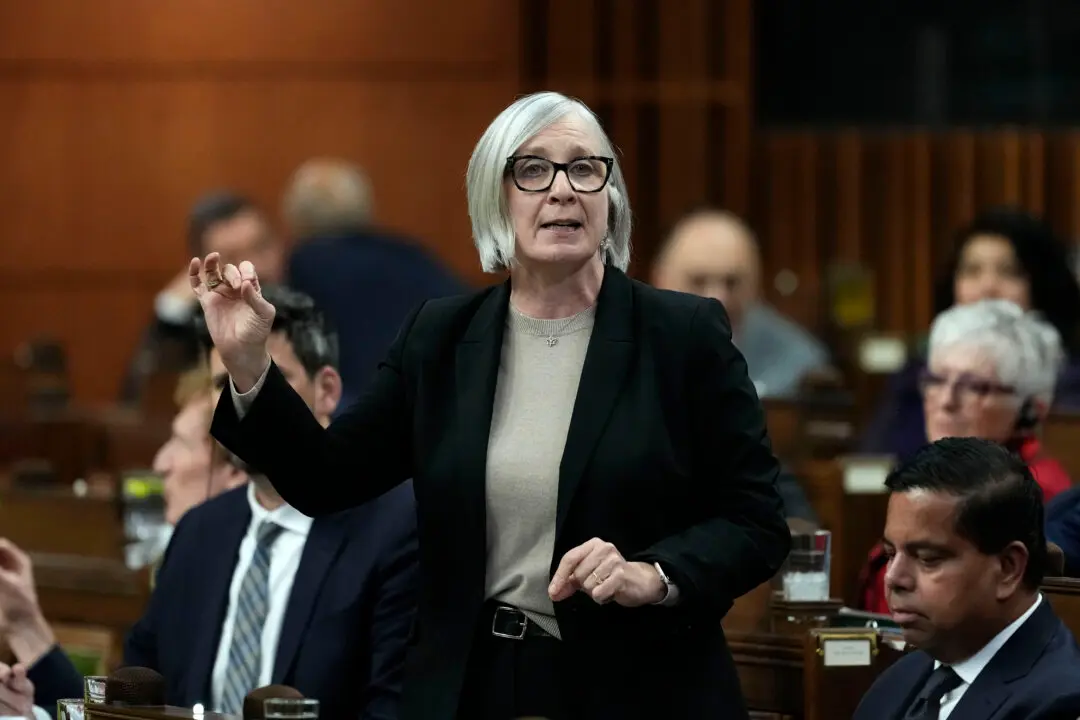OTTAWA—The federal government is studying the potential economic impacts of the controversial Trans-Pacific Partnership, Canada’s international trade minister confirmed Wednesday, Jan. 3.
Chrystia Freeland was in New Zealand on Wednesday to sign the massive 12-country Pacific Rim treaty—a deal opponents warn could eliminate Canadian jobs and damage some sectors of the economy.
That signature comes before the government has finished assessing the economic costs and benefits the deal potentially holds for Canada, she acknowledged.
But Freeland has also said on multiple occasions that signing the deal would not necessarily mean ratification, a final step that is up to two years away.
The Liberals have billed the signature as a “technical step” that will allow Canada to stay at the bargaining table.
In the meantime, the government is taking a closer look the TPP’s potential consequences, Freeland acknowledged Wednesday in a conference call from Auckland prior to signing the agreement.
“That is a very important part of the analysis and of the conversation that Canadians need to have,” she said. “It’s a big job and we are working on it.”
Freeland has also requested a thorough study of the agreement by a parliamentary committee and has conducted public consultations. Once the deal is signed, only a majority vote in Parliament would seal its ratification.





